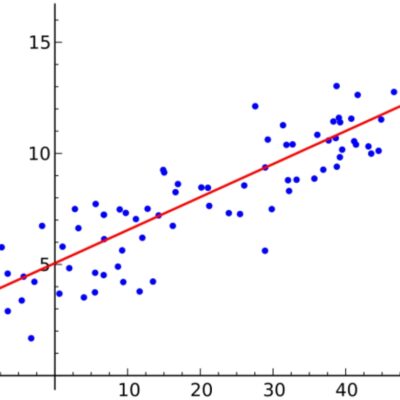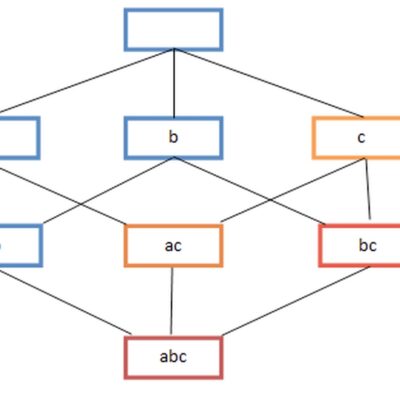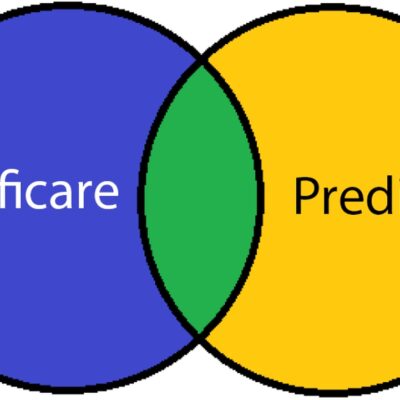Am combinat aici o parte din ceea ce am acoperit în articolele anterioare într-o clasă Python.
import codecs
from math import sqrt
users = {"Angelica": {"Blues Traveler": 3.5, "Broken Bells": 2.0,
"Norah Jones": 4.5, "Phoenix": 5.0,
"Slightly Stoopid": 1.5,
"The Strokes": 2.5, "Vampire Weekend": 2.0},
"Bill":{"Blues Traveler": 2.0, "Broken Bells": 3.5,
"Deadmau5": 4.0, "Phoenix": 2.0,
"Slightly Stoopid": 3.5, "Vampire Weekend": 3.0},
"Chan": {"Blues Traveler": 5.0, "Broken Bells": 1.0,
"Deadmau5": 1.0, "Norah Jones": 3.0, "Phoenix": 5,
"Slightly Stoopid": 1.0},
"Dan": {"Blues Traveler": 3.0, "Broken Bells": 4.0,
"Deadmau5": 4.5, "Phoenix": 3.0,
"Slightly Stoopid": 4.5, "The Strokes": 4.0,
"Vampire Weekend": 2.0},
"Hailey": {"Broken Bells": 4.0, "Deadmau5": 1.0,
"Norah Jones": 4.0, "The Strokes": 4.0,
"Vampire Weekend": 1.0},
"Jordyn": {"Broken Bells": 4.5, "Deadmau5": 4.0,
"Norah Jones": 5.0, "Phoenix": 5.0,
"Slightly Stoopid": 4.5, "The Strokes": 4.0,
"Vampire Weekend": 4.0},
"Sam": {"Blues Traveler": 5.0, "Broken Bells": 2.0,
"Norah Jones": 3.0, "Phoenix": 5.0,
"Slightly Stoopid": 4.0, "The Strokes": 5.0},
"Veronica": {"Blues Traveler": 3.0, "Norah Jones": 5.0,
"Phoenix": 4.0, "Slightly Stoopid": 2.5,
"The Strokes": 3.0}
}
class recommender:
def __init__(self, data, k=1, metric='pearson', n=5):
""" initialize recommender
currently, if data is dictionary the recommender is initialized
to it.
For all other data types of data, no initialization occurs
k is the k value for k nearest neighbor
metric is which distance formula to use
n is the maximum number of recommendations to make"""
self.k = k
self.n = n
self.username2id = {}
self.userid2name = {}
self.productid2name = {}
# for some reason I want to save the name of the metric
self.metric = metric
if self.metric == 'pearson':
self.fn = self.pearson
#
# if data is dictionary set recommender data to it
#
if type(data).__name__ == 'dict':
self.data = data
def convertProductID2name(self, id):
"""Given product id number return product name"""
if id in self.productid2name:
return self.productid2name[id]
else:
return id
def userRatings(self, id, n):
"""Return n top ratings for user with id"""
print ("Ratings for " + self.userid2name[id])
ratings = self.data[id]
print(len(ratings))
ratings = list(ratings.items())
ratings = [(self.convertProductID2name(k), v)
for (k, v) in ratings]
# finally sort and return
ratings.sort(key=lambda artistTuple: artistTuple[1],
reverse = True)
ratings = ratings[:n]
for rating in ratings:
print("%s\t%i" % (rating[0], rating[1]))
def loadBookDB(self, path=''):
"""loads the BX book dataset. Path is where the BX files are
located"""
self.data = {}
i = 0
#
# First load book ratings into self.data
#
f = codecs.open(path + "BX-Book-Ratings.csv", 'r', 'utf8')
for line in f:
i += 1
#separate line into fields
fields = line.split(';')
user = fields[0].strip('"')
book = fields[1].strip('"')
rating = int(fields[2].strip().strip('"'))
if user in self.data:
currentRatings = self.data[user]
else:
currentRatings = {}
currentRatings[book] = rating
self.data[user] = currentRatings
f.close()
#
# Now load books into self.productid2name
# Books contains isbn, title, and author among other fields
#
f = codecs.open(path + "BX-Books.csv", 'r', 'utf8')
for line in f:
i += 1
#separate line into fields
fields = line.split(';')
isbn = fields[0].strip('"')
title = fields[1].strip('"')
author = fields[2].strip().strip('"')
title = title + ' by ' + author
self.productid2name[isbn] = title
f.close()
#
# Now load user info into both self.userid2name and
# self.username2id
#
f = codecs.open(path + "BX-Users.csv", 'r', 'utf8')
for line in f:
i += 1
#print(line)
#separate line into fields
fields = line.split(';')
userid = fields[0].strip('"')
location = fields[1].strip('"')
if len(fields) > 3:
age = fields[2].strip().strip('"')
else:
age = 'NULL'
if age != 'NULL':
value = location + ' (age: ' + age + ')'
else:
value = location
self.userid2name[userid] = value
self.username2id[location] = userid
f.close()
print(i)
def pearson(self, rating1, rating2):
sum_xy = 0
sum_x = 0
sum_y = 0
sum_x2 = 0
sum_y2 = 0
n = 0
for key in rating1:
if key in rating2:
n += 1
x = rating1[key]
y = rating2[key]
sum_xy += x * y
sum_x += x
sum_y += y
sum_x2 += pow(x, 2)
sum_y2 += pow(y, 2)
if n == 0:
return 0
# now compute denominator
denominator = (sqrt(sum_x2 - pow(sum_x, 2) / n)
* sqrt(sum_y2 - pow(sum_y, 2) / n))
if denominator == 0:
return 0
else:
return (sum_xy - (sum_x * sum_y) / n) / denominator
def computeNearestNeighbor(self, username):
"""creates a sorted list of users based on their distance to
username"""
distances = []
for instance in self.data:
if instance != username:
distance = self.fn(self.data[username],
self.data[instance])
distances.append((instance, distance))
# sort based on distance -- closest first
distances.sort(key=lambda artistTuple: artistTuple[1],
reverse=True)
return distances
def recommend(self, user):
"""Give list of recommendations"""
recommendations = {}
# first get list of users ordered by nearness
nearest = self.computeNearestNeighbor(user)
#
# now get the ratings for the user
#
userRatings = self.data[user]
#
# determine the total distance
totalDistance = 0.0
for i in range(self.k):
totalDistance += nearest[i][1]
# now iterate through the k nearest neighbors
# accumulating their ratings
for i in range(self.k):
# compute slice of pie
weight = nearest[i][1] / totalDistance
# get the name of the person
name = nearest[i][0]
# get the ratings for this person
neighborRatings = self.data[name]
# get the name of the person
# now find bands neighbor rated that user didn't
for artist in neighborRatings:
if not artist in userRatings:
if artist not in recommendations:
recommendations[artist] = (neighborRatings[artist]
* weight)
else:
recommendations[artist] = (recommendations[artist]
+ neighborRatings[artist]
* weight)
# now make list from dictionary
recommendations = list(recommendations.items())
recommendations = [(self.convertProductID2name(k), v)
for (k, v) in recommendations]
# finally sort and return
recommendations.sort(key=lambda artistTuple: artistTuple[1],
reverse = True)
# Return the first n items
return recommendations[:self.n]
Codul Python pentru clasa de recomandări îl puteți descărca de aici: recommender.py
Exemplu de rulare a programului:
În primul rând, vom construi o instanță a clasei de recomandare cu datele pe care le-am folosit anterior:
>>> r = recommender(users)
Câteva exemple simple folosind aceste evaluări ale trupelor:
>>> r.recommend(‘Jordyn’)
[(‘Blues Traveler’, 5.0)] >>> r.recommend(‘Hailey’)[(‘Phoenix’, 5.0), (‘Slightly Stoopid’, 4.5)]
Sursa: Ron Zacharski, A Programmer’s Guide to Data Mining – The Ancient Art of the Numerati. Licența CC BY-NC 3.0. Traducere și adaptare: Nicolae Sfetcu
Articol oferit sub licență CC BY-NC 3.0













Lasă un răspuns